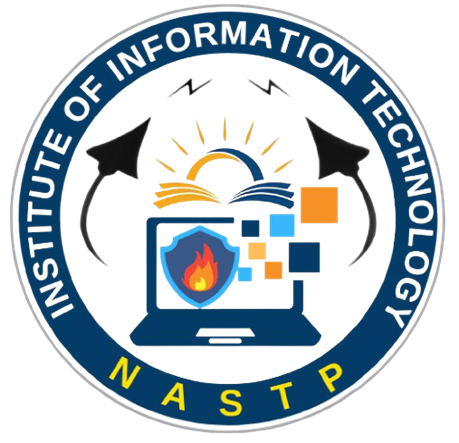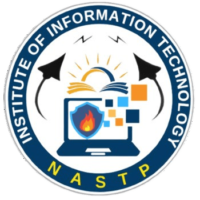BS Computer Science
By four years after graduation, graduates of Computer Science program will have:
- PEO 1: Entered in the Computer Science, sciences, technologies or related fields in prominent organizations or working as a technopreneur.
- PEO 2: Become medium level experts able to creatively apply their expertise of science, and technology to the best of society and industry.
- PEO 3: Earned a reputation as a professional, sensitive to the environmental, social, safety and economic context and possess a strong commitment to ethical practices.
- PEO 4: Attained a leadership position and be acknowledged as a valuable team member able to skilledworkforce embodied with the spirit of discovery
- PEO 5: Continued their professional development and physical well-being
PLO 1: Academic Education : Prepare graduates having educational depth and breadth knowledge and prepare Computing professionals.
PLO 2: Knowledge for Solving Computing Problems: Apply knowledge of computing fundamentals, knowledge of a computing specialization, and mathematics, science, and domain knowledge appropriate for the computing specialization to the abstraction and conceptualization of computing models from defined problems and requirements.
PLO 3: Problem Analysis: Identify, formulate, research literature, and solve complex computing problems reaching substantiated conclusions using fundamental principles of mathematics, computing sciences, and relevant domain disciplines.
PLO 4: Design/ Development of Solutions: Design and evaluate solutions for complex computing problems, and design and evaluate systems, components, or processes that meet specified needs with appropriate consideration for public health and safety, cultural, societal, and environmental considerations
PLO 5: Modern Tool Usage: Create, select, adapt, and apply appropriate techniques, resources, and modern computing tools to complex computing activities, with an understanding of the limitations.
PLO 6: Individual and Teamwork Function effectively as an individual and as a member or leader in diverse teams and in multi-disciplinary settings.: An ability to apply reasoning informed by contextual knowledge to assess societal, health, safety, legal and cultural issues and the consequent responsibilities relevant to professional engineering practice and solution to complex engineering problems.
PLO 7: Communication:Communicate effectively with the computing community and with society at large about complex computing activities by being able to comprehend and write effective reports, design documentation, make effective presentations, and give and understand clear instructions.
PLO 8: Computing Professionalism and Society: Understand and assess societal, health, safety, legal, and cultural issues within local and global contexts, and the consequential responsibilities relevant to professional computing practice.
PLO 9: Ethics: Understand and commit to professional ethics, responsibilities, and norms of professional computing practice.
PLO 10: Life-long Learning: Recognize the need, and have the ability, to engage in independent learning for continual development as a computing professional.
| Coding Scheme | Course Title | Domain | Cr hr (Cont hr) |
| Semester 1 | |||
| 1 | Programming Fundamentals | Core | 3 (3) |
| 2 | Programming Fundamentals Lab | Core | 1 (3) |
| 3 | Application of Information & Communication Technologies | GER | 2 (2) |
| 4 | Application of Information & Communication Technologies Lab | GER | 1 (3) |
| 5 | Discrete Structures | GER | 3 (3-0) |
| 6 | Calculus and Analytic Geometry | GER | 3 (3-0) |
| 7 | Functional English | GER | 3 (3-0) |
| Total Cr Hrs | 16 (14-6) | ||
| Semester 2 | |||
| 8 | Object Oriented Programming | Core | 3 (3) |
| 9 | Object Oriented Programming Lab | Core | 1 (3) |
| 10 | Database Systems | Core | 3 (3) |
| 11 | Database Systems Labs | Core | 1 (3) |
| 12 | Digital Logic Design | Core | 2 (2) |
| 13 | Digital Logic Design Lab | Core | 1 (3) |
| 14 | Multivariable Calculus | Maths | 3 (3-0) |
| 15 | Linear Algebra | Maths | 3 (3-0) |
| Total Cr Hrs | 17 (14-9) | ||
| Semester 3 | |||
| 16 | Data Structures | Core | 3 (3) |
| 17 | Data Structures Lab | Core | 1 (3) |
| 18 | Information Security | Core | 2 (2) |
| 19 | Information Security Lab | Core | 1 (3) |
| 20 | Artificial Intelligence | Core | 2 (2) |
| 21 | Artificial Intelligence Lab | Core | 1 (3) |
| 22 | Computer Networks | Core | 2 (2) |
| 23 | Computer Networks Lab | Core | 1 (3) |
| 24 | Software Engineering | Core | 3 (3-0) |
| 25 | Probability & Statistics | Maths | 3 (3-0) |
| Total Cr Hrs | 19 (15-12) | ||
| Semester 4 | |||
| 26 | Computer Organization & Assembly Language | Core | 2 (2) |
| 27 | Computer Organization & Assembly Language Lab | Core | 1 (3) |
| 28 | Theory of Automata | Domain Core | 3 (3) |
| 29 | Advance Database Management Systems | Domain Core | 2 (2) |
| 30 | Advance Database Management Systems Lab | Domain Core | 1 (3) |
| 31 | Applied Physics | GER | 2 (2) |
| 32 | Applied Physics Lab | GER | 1 (3) |
| 33 | Expository Writing | GER | 3 (3-0) |
| 34 | Islamic Studies | GER | 2 (2-0) |
| Total Cr Hrs | 17 (14-9) | ||
| Semester 5 | |||
| 35 | Operating Systems | Core | 2 (2) |
| 36 | Operating Systems Lab | Core | 1 (3) |
| 37 | HCI & Computer Graphics | Domain Core | 2 (2) |
| 38 | HCI & Computer Graphics Lab | Domain Core | 1 (3) |
| 39 | Computer Architecture | Domain Core | 2 (2) |
| 40 | Computer Architecture | Domain Core | 1 (3) |
| 41 | Web Technologies | Domain Elective | 2 (2) |
| 42 | Web Technologies Lab | Domain Elective | 1 (3) |
| 43 | Mobile Application Development 1 | Domain Elective | 2 (2) |
| 44 | Mobile Application Development 1 Lab | Domain Elective | 1 (3) |
| 45 | Introduction to Management | GER | 2 (2-0) |
| Total Cr Hrs | 17 (12-15) | ||
| Semester 6 | |||
| 46 | Compiler Construction | Domain Core | 2 (2) |
| 47 | Compiler Construction Lab | Domain Core | 1 (3) |
| 48 | Parallel & Distributed Computing | Domain Core | 2 (2) |
| 49 | Parallel & Distributed Computing Lab | Domain Core | 1 (3) |
| 50 | Advanced Programming | Domain Elective | 2 (2) |
| 51 | Advanced Programming Lab | Domain Elective | 1 (3) |
| 52 | Numerical Analysis | Domain Elective | 2 (2) |
| 53 | Numerical Analysis Lab | Domain Elective | 1 (3) |
| 54 | Web Engineering | Domain Elective | 2 (2) |
| 55 | Web Engineering Lab | Domain Elective | 1 (3) |
| 56 | Cyber Security | Domain Elective | 2 (2) |
| 57 | Cyber Security Lab | Domain Elective | 1 (3) |
| Total Cr Hrs | 18 (12-18) | ||
| Semester 7 | |||
| 58 | Final Year Project – I | Core | 2 (0-6) |
| 59 | Analysis of Algorithms | Core | 3 (3-0) |
| 60 | Software Testing & Quality Assurance | Domain Elective | 2 (2) |
| 61 | Software Testing & Quality Assurance Lab | Domain Elective | 1 (3) |
| 62 | Introduction to Marketing | SS | 3 (3-0) |
| 63 | Technical & Business Writing | EN | 3 (3-0) |
| 64 | Entrepreneurship | GER | 2 (2-0) |
| Total Cr Hrs | 16 (13-9) | ||
| Semester 8 | |||
| 65 | Final Year Project – II | Core | 4 (0-12) |
| 66 | Ideology and Constitution of Pakistan | GER | 2 (2-0) |
| 67 | Professional Practices | GER | 2 (2-0) |
| 68 | Civics and Community Engagement | GER | 2 (2-0) |
| Total Cr Hrs | 10 (6-12) | ||
- At least 50% marks in Intermediate (HSSC) examination with Mathematics or equivalent qualification with Mathematics. OR At least 50% marks in Intermediate (HSSC) examination with Pre-Medical or equivalent qualification,
- certified by IBCC OR The GCE ‘A’ level examination with three subjects (Physics, Math and Chemistry or Computer Study)
- certified by IBCC
- “Students with pre-medical, must have to pass deficiency courses of Mathematics of 6 credit hours in first two semesters.” *Provisional admission will be granted to the students who are awaiting results, which will be strictly subject to the passing of ALL exams with min. 50% marks.
- Fully aligned with HEC/NCEAC criteria
| Fee For Spring-2024 (New Intake Students) | |||||
|---|---|---|---|---|---|
| S.No | Program(s) | Admission Fee (One-Time) | Security Deposit (Refundable) | Tuition Fee (per credit hr) | Misc Charges (per semester) |
| 1 | BS Computer Science | Rs. 20,000/- | Rs. 20,000/- | Rs. 7,500/- | Rs. 20,000/- |
| 2 | BS Software Engineering | Rs. 20,000/- | Rs. 20,000/- | Rs. 7,500/- | Rs. 20,000/- |
| 3 | BS Artificial Intelligence | Rs. 20,000/- | Rs. 20,000/- | Rs. 7,500/- | Rs. 20,000/- |
| 4 | BS Cyber Security | Rs. 20,000/- | Rs. 20,000/- | Rs. 7,500/- | Rs. 20,000/- |
Note: Tuition fee for first semester is Rs. 120,000/-

